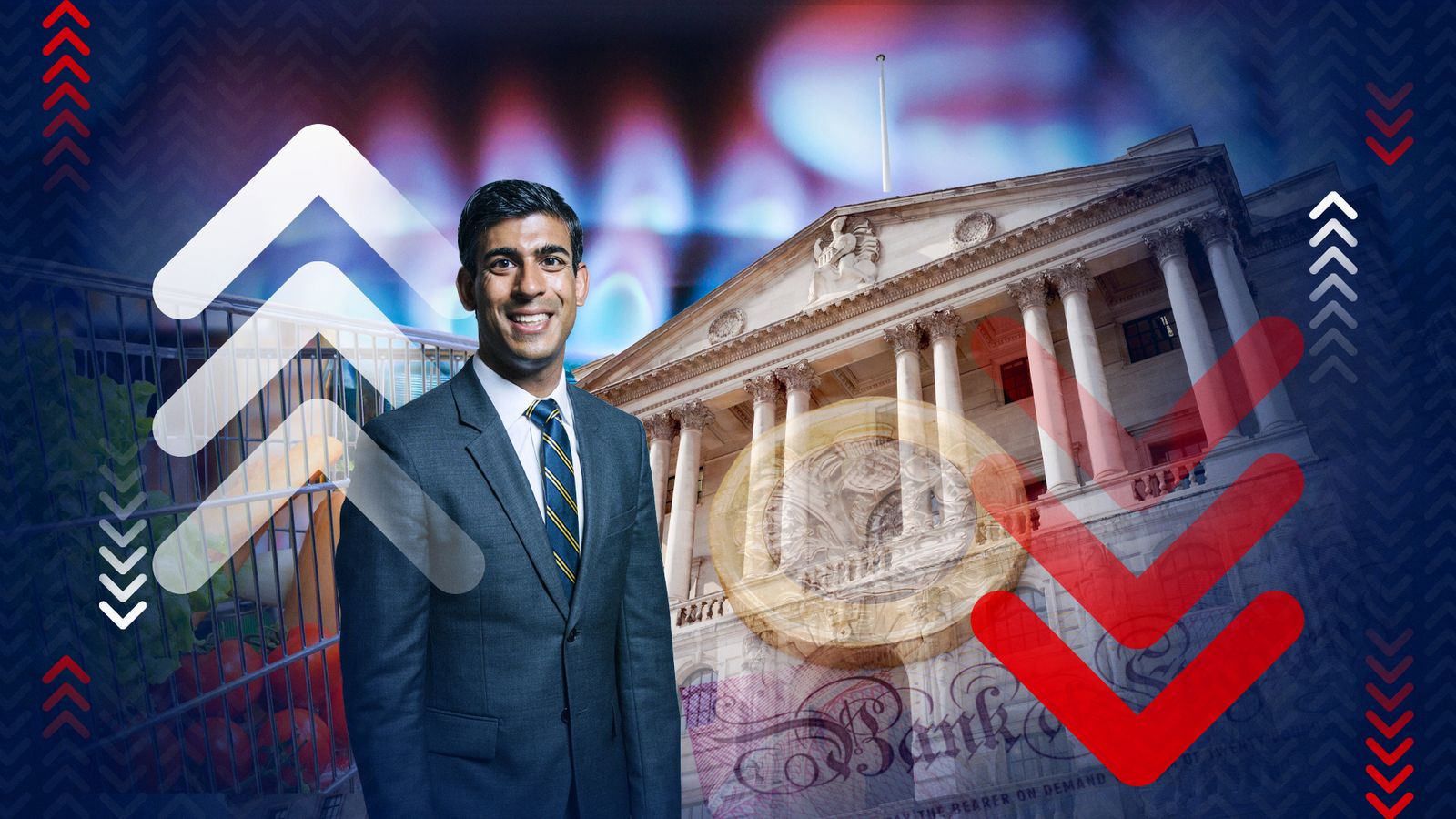It is much too early to be thinking about rate cuts.
So said the Bank of England governor today, and it’s fair to say this is the main message he wants the British public to take away with them.
And in one sense you can understand why.
Inflation is still way above the Bank’s 2% target.
It’s unlikely to be anywhere close to that until the middle of 2025, and we are still, at least as far as inflation is concerned, in dangerous territory.
Pay growth is high, and the longer that goes on, the greater the chance, as far as the Bank is concerned, that it beds in sticky, high, long-term inflation.
But now consider the other evidence. The economy is not exactly cratering, but it is far from healthy.
The Bank’s forecasts today paint a picture of stagnation, with quarter after quarter of zero gross domestic product growth. Come 2026 UK plc is projected to be barely much bigger than it is today.
Moreover, there are clear signs (if you peer through the admittedly unreliable data) that the labour market is weakening.
Please use Chrome browser for a more accessible video player
It’s hard to think of another occasion when inflation was falling, GDP forecasts worsening and the labour market weakening and the Bank of England did not cut interest rates.
All of which is why the pressure is likely to grow on the Bank of England in the coming months.
Right now, markets are anticipating that the Monetary Policy Committee (MPC) will leave interest rates at their current 5.25% level all the way through to the second half of next year. The Bank has dropped a few hints that we could have to wait even longer.
Throw in the fact that the UK is heading into an election year, and you can see why 2024 will be very uncomfortable for the Bank.
With their constituents facing growing mortgage costs, with businesses cutting back on investment because of higher borrowing costs, MPs are likely to lobby the Bank, with increasing vociferousness, to change course.
All of which is why many Bank insiders say that what they were really fearing about this period wasn’t so much having to raise interest rates.
The bit they’re most worried about is what comes next: having to hold those interest rates at a high level long beyond what most people feel comfortable with.
In one sense there’s nothing new about this. Throughout history, central banks have butted up against their political masters. George HW Bush famously blamed Alan Greenspan (the then Federal Reserve chairman) for costing him the 1992 election.
As Britain approaches its next election, relations between Threadneedle Street – desperate to keep interest rates high – and Downing Street might become frayed yet again.






















